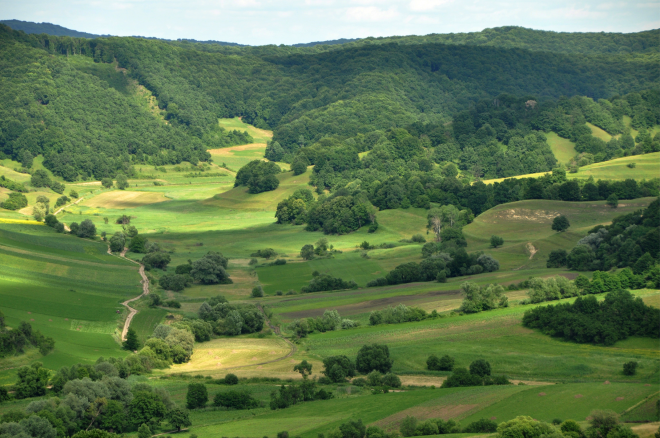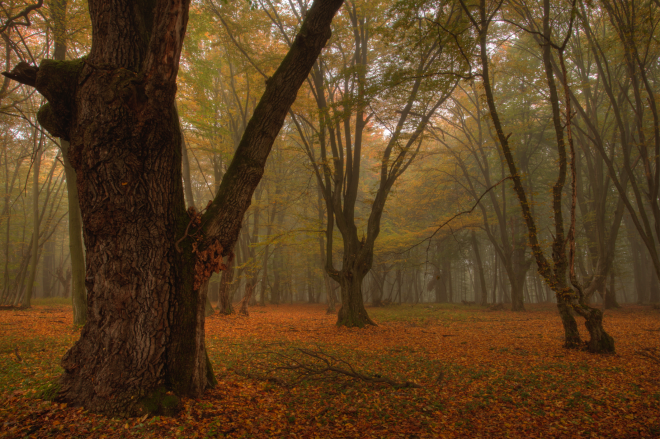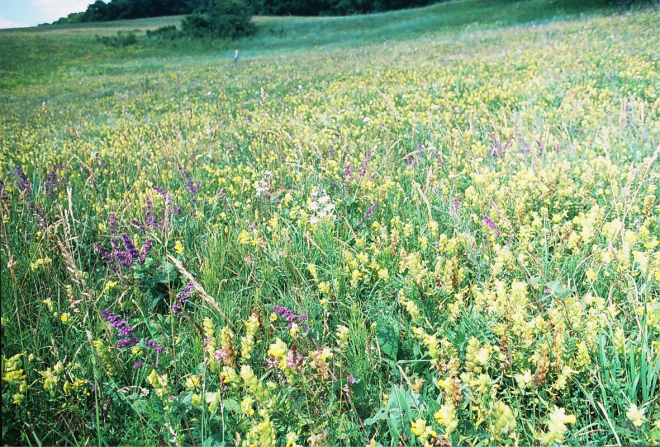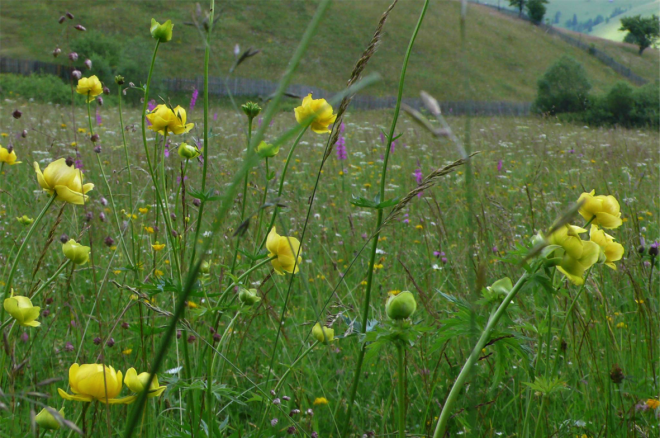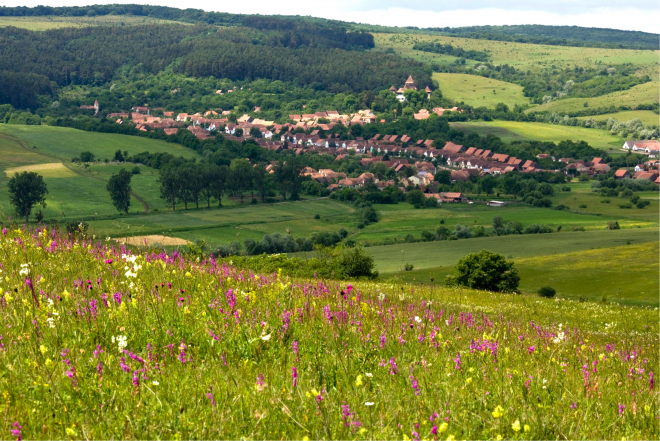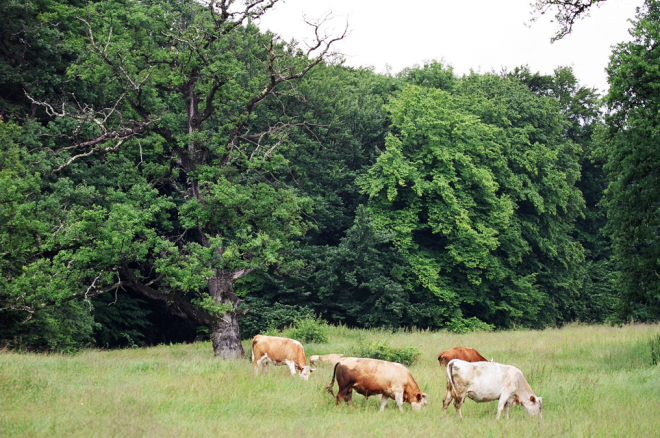Thanks to its variety of interconnected habitats including; wildflower-rich meadows, old-growth forests, gallery woodland, wood pastures and small areas of arable land, the Târnava Mare area of Transylvania supports a wide range of Europe’s rare and threatened species. However, it is under threat from outside investors who will abandon nature-friendly management in favour of intense farming methods therefore impacting both the landscapes and the local communities.
These landscapes are important because of their biodiversity and rich ecosystem services (such as clean air, water retention, flood prevention, pollination, soil quality and carbon sequestration). They are a model of how humans and nature can exist in harmony in a productive landscape.
Nathaniel Page, Director, Fundatia ADEPT Transylvania
-

Villages, grassland and forest exist in harmony -

Woodland makes up 40% of the Târnava Mare landscape -

Forests, and natural and semi-natural grasslands are the habitat groups with the highest percentage of anthropogenic loss globally -

Transylvanian meadows have the highest floristic diversity recorded anywhere in the world -

The landscape can only be kept alive by working with local farming communities -

Wood pasture, as found in the area, are another threatened habitat in Europe
Conservation methods
The only way to protect this diverse ecosystem is to work together with local farming communities. ADEPT works to encourage farmers to develop their farming methods using low-impact technology and modern marketing rather than following the route of intensification which, studies have shown, can decrease habitat and species diversity in an area.
The project aims to improve both farmers’ productivity and habitat conservation by offering advisory services and training for farming communities, improving nature-friendly grassland management linked to economic benefits to local farmers. Innovative marketing of their products and services helps to ensure that farmers are properly rewarded for their efforts and therefore provide them with an incentive to continue.
Long term research and monitoring of the ecosystems will help provide evidence for best conservation methods, and evaluation of the ecosystem services could help bring much needed compensation to farmers in recognition of the environmental benefits of low intensity agricultural methods.
Ecological importance
Even today, many Transylvanian families still use traditional farming methods. This type of low-intensity agriculture has encouraged the development of species-rich grasslands, so although the Transylvanian lowland farmed landscapes are influenced by humans, they contain biodiversity status of European and global significance.
The mosaic of habitats supports a variety of mammal species, including threatened species, by offering connectivity, as well as nesting and hunting perches for birds of prey. The grasslands contain an astonishing diversity of wildflowers. The area is also home to 650 species of butterflies and moths as well as many insects, lizards and snakes.
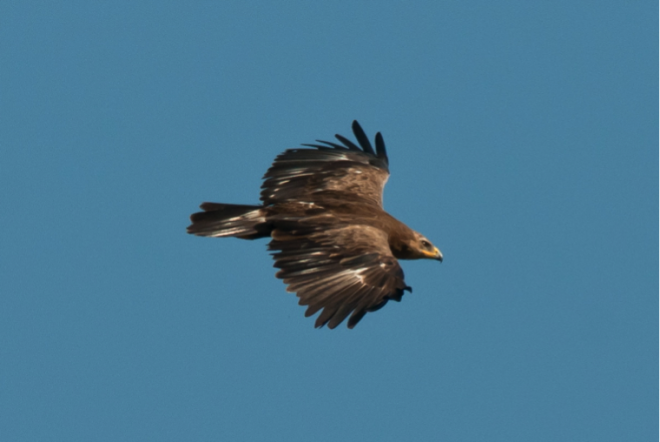
Lesser spotted eagle
The lesser spotted eagle is one of the many birds found in the area
Achievements
ADEPT uses policy, the market, and training of farmers and farmer groups, as its main tools to save the landscape. Using policy, ADEPT was key to the design and introduction of Romania’s High Nature Value grassland payments, which are supporting over 250,000 farmers on 1.2 million hectares in Romania. Using the market, ADEPT's marketing ideas have brought many thousands of pounds a year to small-scale farmers linked to sustainable land use. And using training, ADEPT has stimulated village-level cooperation, which has demonstrated the economic and landscape-scale conservation benefits of a cooperative approach.
ADEPT won the top prize in 2012 and 2013 for the most innovative farm advisory services in the EU, and again in 2014 for the best project for bringing local benefits to communities within a protected area; and won Sustainable Cultural Tourism first prize from European Cultural Tourism Network for its project "Transylvania Mountain Bike Trail to revitalize the Târnava Mare cultural landscape", in 2017.
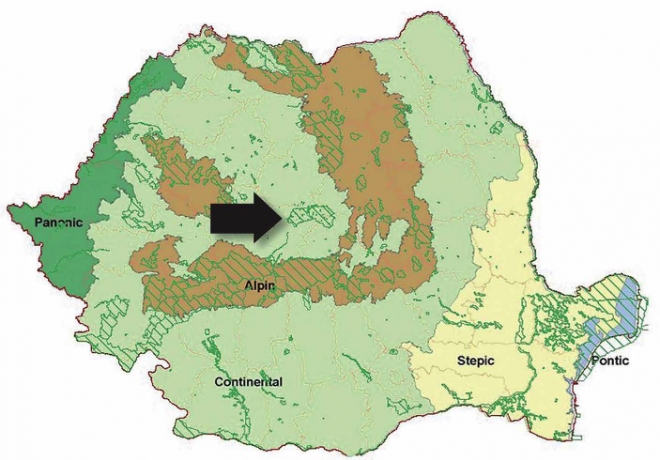
Location of the project
The Târnava Mare area is in southern Transylvania, Romania
